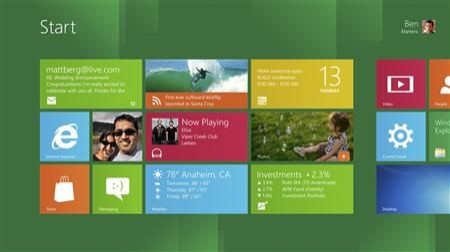Microsoft Does an Apple: Windows 8-Based Tablets Won't be Powered by Adobe Flash

Microsoft has confirmed that the Metro tablet version of Internet Explorer 10 on Windows 8 will be a plug-in free browser. Microsoft will now back HTML5 for its browser.
Desktop versions of Internet Explorer 10, however, will still support plug-ins, according to the president of the Windows division, Steven Sinofsky.
“For the Web to move forward and for consumers to get the most out of touch-first browsing, the Metro style browser in Windows 8 is as HTML5-only as possible, and plug-in free. The experience that plug-ins provide today is not a good match with Metro style browsing and the modern HTML5 Web,” Sinofsky wrote.
Apple was the first to let go of Flash from the company’s mobile devices. Then-CEO Steve Jobs said Flash drains devices of battery life and slows down the user’s entire experience.
“Running Metro style IE plug-in free improves battery life as well as security, reliability, and privacy for consumers. Plug-ins were important early on in the Web’s history,” Sinofsky added. “But the Web has come a long way since then with HTML5. Providing compatibility with legacy plug-in technologies would detract from, rather than improve, the consumer experience of browsing in the Metro style UI.”
Metro is Microsoft's custom interface and touch layer for tablet devices built into Windows 8. The company previously discussed details on the new Windows 8 at its Build conference in Southern California this week and provided developers with a “pre-data” version.
“On Windows 8, consumer sites and line of business applications that require legacy ActiveX controls will continue to run in the desktop browser, and people can tap “Use Desktop View” in Metro style IE for these sites. For what these sites do, the power of HTML5 makes more sense, especially in Windows 8 apps,” Sinofsky said. “Plug-in free browsers today already deliver great experiences with well-authored HTML5 content. These experiences get even better with touch in Metro style IE.”
Sinofsky’s decision may have been influenced by the fate of both Motorola Xoom and RIM PlayBook, which went forward to become the first ever Flash-powered tablets that are now dying, according to an AppleInsider report.
© Copyright IBTimes 2024. All rights reserved.





















